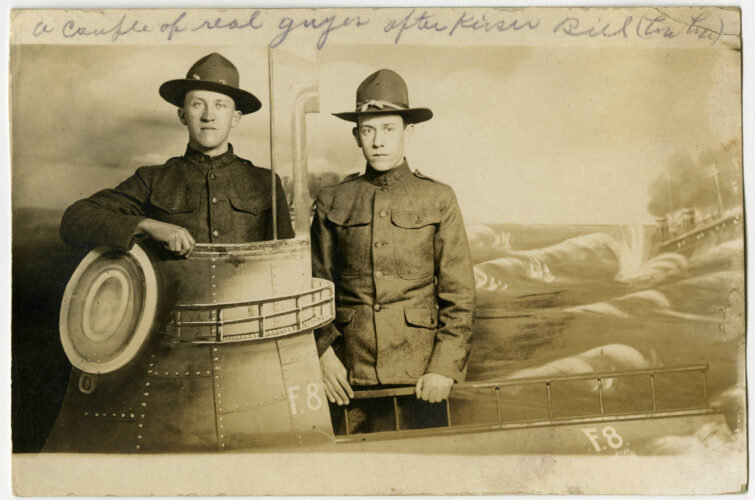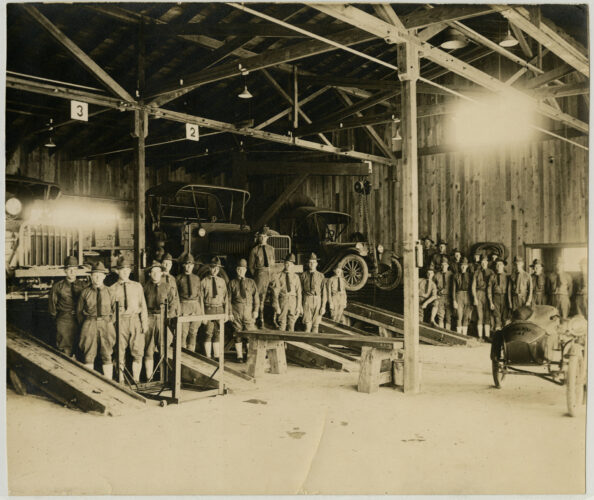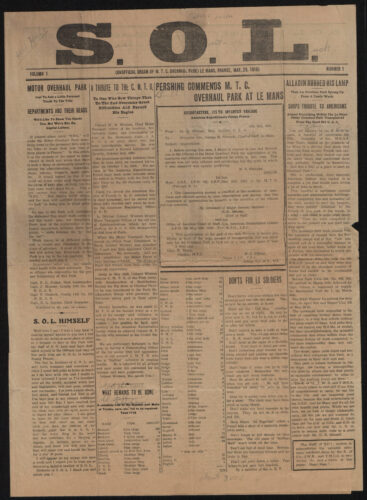S.O.L. in France: A Soldiers’ Newspaper in 1919

Following the end of World War I in November of 1918, it took months for the American forces in Europe to return to the United States. In their downtime, they yearned for home and tried to keep themselves entertained. On direction from one Colonel W. H. Winters, some soldiers under his command in a motor park (where motor vehicles were held and repaired) near Le Mans began publishing a humorous weekly newspaper titled S.O.L. in late May 1919 with the aid of a nearby French print shop. The meaning of the titular acronym was not printed, perhaps for censorship reasons, but the editors’ fellow soldiers would have understood perfectly.

In its first edition, the creators expressed their desire to use S.O.L. to “make record in black and white that there is such a thing as personality mixed up among the administration, inspection, shops, salvage, dispatch, spare parts, etc.” They were effective in this pursuit, offering readers today an interesting and entertaining look into the world of these young men, their humor, and their day-to-day as soldiers stuck in the limbo between war and peace. While some columns take a staid tone, such as one simply laying out “[a] complete list of the number and make of trucks, cars, etc. yet to be repaired” residing at the motor park, others offer lighthearted anecdotes, cheeky quotes and poetry, an advice column from “Cinderella,” japes and jabs at fellow soldiers, sports scores and news, and comedy-laced advice for soldiers for when they get back to America.

The text is loaded with slang terms that fell out of use a century ago and references that only a soldier at this motor park would ever understand. One of my favorite tidbits is from the news column for the 409th S.P.U. [Service Park Unit]: “Zeigler, our pork dodger says; ‘Sarg, will you put me on sick call tomorrow, I think I’ll be sick.’” As best I can tell, “pork dodger” means someone who shirks and evades their duties, but in the context of the whole paper it takes on the air of good-natured teasing.
We only know any of this is because a soldier from Ohio held onto a print of the first issue of this unique newspaper, and it has since been donated to the Ohio History Center. That soldier was either Claude (Earl) Gorrell or possibly his younger brother, Joseph Gorrell, two young men whose parents and siblings waited for them back home in East Cleveland. Other Gorrell family materials, including correspondence and assorted family photographs, were also donated to the Ohio History Center where they reside today. Some, including S.O.L., have been digitized and are easily and freely accessible on OhioMemory! If you have any interest in the American army of World War I, I encourage you to take a few minutes, look over this artifact from a different time and place, and get a fascinating glimpse of the past!
Thank you to David McDevitt, NDNP Project Assistant at the Ohio History Connection, for this week’s post!



Leave a Reply
You must be logged in to post a comment.